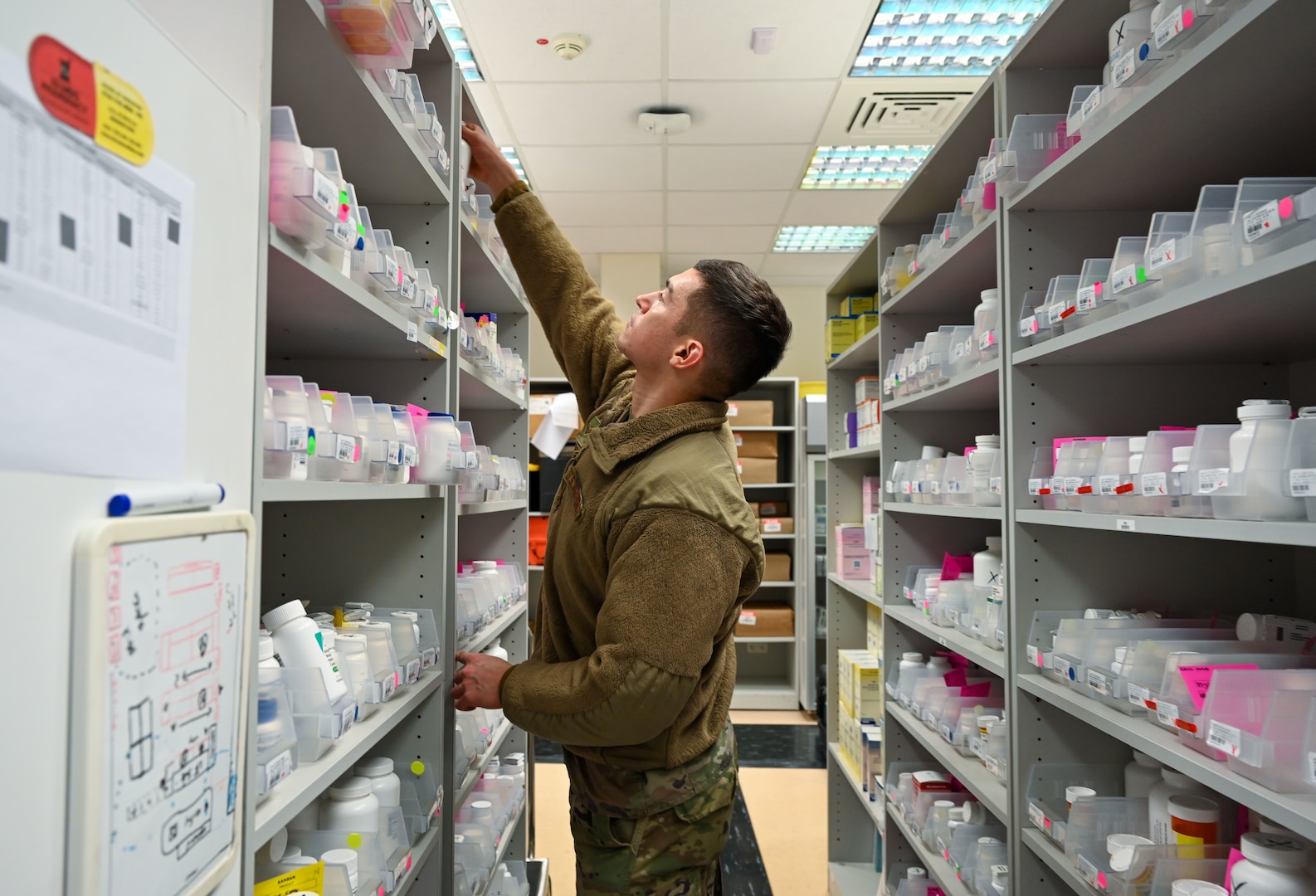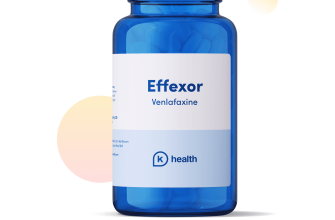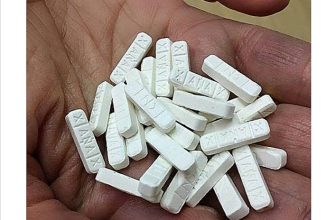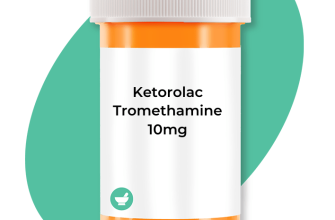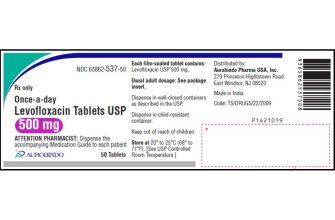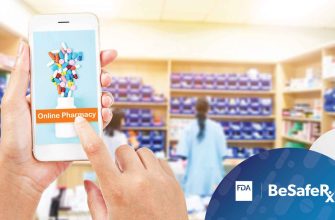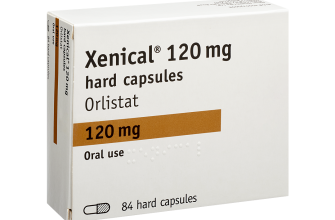Need prescription drugs at a lower cost? Consider exploring international pharmacies. However, safety and legitimacy are paramount. This guide provides specific steps to help you navigate this process effectively.
First, verify the pharmacy’s licensing and accreditation. Look for official registration with regulatory bodies in their country of operation. Websites like the Pharmacy Checker Verification Program offer valuable resources to confirm a pharmacy’s credentials. Don’t rely solely on online reviews; independent verification is key.
Second, prioritize pharmacies with transparent pricing structures and readily available contact information. Avoid those that hide fees or offer unusually low prices – these could signal counterfeit medications or scams. A legitimate pharmacy will provide clear details about shipping, handling, and potential customs charges.
Third, carefully review patient testimonials and online reviews from reputable sources. Look for consistent patterns in feedback; isolated positive reviews can be misleading. Check multiple platforms and be wary of suspiciously positive, generic-sounding comments. A reputable pharmacy will have a mix of feedback, addressing negative experiences openly and honestly.
Finally, consult your doctor before ordering medications from an international pharmacy. They can advise on potential compatibility issues with current medications and ensure the chosen drugs are safe and appropriate for your needs. This step minimizes health risks and ensures a smooth transition.
- Non-US Pharmacies: A Comprehensive Guide
- Medication Authenticity and Safety
- Prescription Requirements and Legal Compliance
- Payment and Shipping
- Finding Legitimate International Online Pharmacies
- Verifying the Authenticity of Medications from Non-US Pharmacies
- Understanding the Legal Ramifications of Ordering from Non-US Pharmacies
- FDA Regulations and You
- Customs and Importation
- Liability and Protection
- Consequences and Penalties
- Recommendations
- Disclaimer
- Comparing Prices and Medication Availability in Non-US Pharmacies
- Factors Affecting Price and Availability
- Medication-Specific Research
- Legal and Ethical Considerations
- Ensuring Safe and Secure Online Transactions with Non-US Pharmacies
- Secure Payment Methods
- Checking for Secure Website Protocols
- Scrutinizing the Pharmacy’s Information
- Medication Verification
- Understanding Risks and Responsibilities
- Additional Tips for Safe Online Transactions
- Reporting Suspicious Activity
- Potential Risks and Dangers of Using Non-US Pharmacies
- Medication Safety and Efficacy
- Legal and Ethical Concerns
- Privacy and Data Security
- Lack of Consumer Protection
- The Role of Your Doctor in Using Non-US Pharmacies
- Medication Interactions and Side Effects
- Dosage and Administration
- Legal and Ethical Considerations
- Ongoing Monitoring
- Navigating Customs and Import Regulations for Medications
Non-US Pharmacies: A Comprehensive Guide
Research thoroughly before using any international online pharmacy. Check the pharmacy’s license and accreditation with the relevant regulatory body in its country of operation. Verify the legitimacy of the medications by checking for manufacturer information and lot numbers. Compare prices across multiple reputable sources; significantly lower prices can be a red flag.
Medication Authenticity and Safety
Always confirm the medication’s authenticity. Look for secure payment gateways (HTTPS) and tamper-evident packaging. Be wary of pharmacies that lack contact information or a physical address. Report any suspicious activity to the relevant authorities. Understand that international shipping regulations vary widely; delays and potential seizure are possibilities.
Prescription Requirements and Legal Compliance
Familiarize yourself with the legal requirements for importing medications into your country. You might need a valid prescription from a licensed physician. Failure to comply with local laws can result in legal penalties. Consider the potential risks associated with counterfeit or substandard medications.
Payment and Shipping
Use secure payment methods like credit cards with buyer protection. Understand the shipping costs and delivery timelines. Check the pharmacy’s return policy, in case of damaged or incorrect shipments. Be aware of potential customs fees or import taxes.
Finding Legitimate International Online Pharmacies
Verify the pharmacy’s license and registration. Check for verifiable licensing information from their country of operation. Look for details on their website or contact them directly to request this information. Don’t trust unregistered sites.
Confirm the pharmacy’s physical address. Legitimate pharmacies will have a traceable street address. Avoid pharmacies with only PO boxes or virtual addresses.
Check for Secure Sockets Layer (SSL) encryption. Look for the padlock icon in your browser’s address bar. This indicates secure communication and protects your personal data.
Read independent reviews and testimonials. Websites like Trustpilot or other review aggregators can provide valuable insight into customer experiences. Consider both positive and negative feedback.
Consult your doctor or pharmacist before ordering medications online. This ensures safe and appropriate medication use, avoiding potential drug interactions or adverse effects.
Compare prices cautiously. While lower prices can be attractive, abnormally low prices often signal counterfeit or substandard drugs. A slightly higher price from a reputable pharmacy is safer.
Scrutinize the website’s design and content. A professional, well-maintained site with clear information demonstrates greater legitimacy than a poorly designed one.
Understand the pharmacy’s return policy. A clear return policy indicates a commitment to customer satisfaction and offers recourse should problems arise.
Be wary of unsolicited emails or advertisements. These often promote illegitimate pharmacies. Stick to reputable sources for your medication needs.
Use trusted payment methods. Choose payment methods that offer buyer protection, such as PayPal or credit cards with fraud protection.
Verifying the Authenticity of Medications from Non-US Pharmacies
Check the pharmacy’s website for licensing and accreditation details. Look for verification from reputable organizations like the Pharmacy Checker Verification Program or similar international bodies. A legitimate pharmacy will openly display this information.
Inspect the packaging carefully. Authentic medications usually have unique security features such as holograms, serial numbers, and tamper-evident seals. Compare these features to images found on the manufacturer’s official website.
Contact the manufacturer directly. Use contact information found on the manufacturer’s official website to verify the authenticity of your medication’s batch number. Many manufacturers offer verification services.
Use a reputable online pharmacy verification service. Several independent services exist that specialize in verifying online pharmacies. Be aware that not all services are created equal, so research any service before using it.
Be wary of unusually low prices. Significantly discounted medications may signal counterfeit products. Legitimate pharmacies will not offer prices drastically below market value.
Scrutinize online reviews. Check independent review sites for user feedback on the specific pharmacy. Be cautious of reviews that seem suspiciously positive or overwhelmingly negative.
Caution: Purchasing medications from non-US pharmacies carries inherent risks. Always prioritize your health and safety. If you have concerns about the authenticity of your medication, consult your doctor or pharmacist.
Understanding the Legal Ramifications of Ordering from Non-US Pharmacies
Ordering medication from international online pharmacies carries significant legal risks. The FDA doesn’t regulate these pharmacies, meaning drug quality and safety aren’t guaranteed. This can lead to receiving counterfeit, contaminated, or ineffective medications, potentially harming your health.
FDA Regulations and You
Importing medication for personal use is often permitted under certain circumstances, but exceeding these limits invites penalties. These limits typically involve small quantities for personal use and the absence of commercial intent. Check the FDA website for the most up-to-date information on personal importation rules. You’re responsible for knowing and abiding by these regulations.
Customs and Importation
Customs officials can seize medications deemed illegal or improperly imported. This includes packages containing drugs without proper documentation or exceeding permitted quantities. You could face fines or even criminal prosecution. Transparency is key – accurately declare all medications on customs forms.
Liability and Protection
Purchasing from non-US pharmacies removes the consumer protections afforded by US laws. If you experience adverse effects or receive substandard medications, obtaining recourse can be exceedingly difficult. You lack the same legal avenues for redress as you would with US pharmacies. This lack of consumer protection is a serious consideration.
Consequences and Penalties
| Violation | Potential Penalty |
|---|---|
| Importing illegal substances | Significant fines, imprisonment |
| Importing medications without proper documentation | Seizure of medication, fines |
| Exceeding permitted import quantities | Seizure, fines, potential legal action |
Recommendations
Always consult your doctor before starting any new medication, regardless of the source. Prioritize your safety and well-being by obtaining prescription drugs only from licensed US pharmacies. This ensures both drug safety and legal compliance.
Disclaimer
This information provides general guidance only and doesn’t constitute legal advice. Consult legal counsel for specific legal questions.
Comparing Prices and Medication Availability in Non-US Pharmacies
Begin by checking reputable international online pharmacies’ websites directly. Compare prices for your specific medication using the generic name, not the brand name. Websites like PharmacyChecker.com can assist with verification of international pharmacies.
Factors Affecting Price and Availability
Price differences stem from varying manufacturing costs, government regulations, and market competition. Availability depends on the drug’s regulatory status in the country of origin. For example, a medication readily available in Canada might have restricted availability in India. Consider shipping costs, which can significantly impact the final price. Prescription requirements also vary; some international pharmacies may require an uploaded prescription while others may not.
Medication-Specific Research
Research your specific medication’s availability and cost in several countries. Utilize online pharmacy comparison tools and consider contacting pharmacies directly for accurate pricing and shipping quotes. Verify the legitimacy of the pharmacy through independent sources before placing an order. Always prioritize safety; avoid pharmacies with questionable reviews or inadequate security measures.
Legal and Ethical Considerations
Ensure the pharmacy operates legally in its jurisdiction and adheres to international drug regulations. Importing medications may be subject to your country’s import laws; check with your customs agency beforehand. Confirm the pharmacy’s accreditation and quality control procedures to guarantee medication authenticity and safety. Remember, using a reputable pharmacy mitigates risks.
Ensuring Safe and Secure Online Transactions with Non-US Pharmacies
Verify the pharmacy’s legitimacy using online resources like the National Association of Boards of Pharmacy (NABP) verification website. Check for a physical address and contact information; avoid pharmacies with only PO boxes.
Secure Payment Methods
Utilize secure payment gateways like PayPal or credit cards offering buyer protection. Avoid using wire transfers or prepaid debit cards, as these offer minimal recourse in case of fraud.
Checking for Secure Website Protocols
Ensure the website uses HTTPS, indicated by a padlock icon in your browser’s address bar. This encrypts your data during transmission, protecting your personal and financial information.
Scrutinizing the Pharmacy’s Information
- Look for clear details on licensing and accreditation.
- Examine their return policy and customer service contact information.
- Read independent reviews and testimonials from other customers before making a purchase. Be wary of overwhelmingly positive reviews, which could be fake.
Medication Verification
Upon receiving your medication, carefully check the packaging for any signs of tampering or damage. Compare the medication’s appearance to images available online for that specific drug. Discrepancies should trigger immediate contact with the pharmacy and potentially the authorities.
Understanding Risks and Responsibilities
Importing medications carries inherent risks. Be aware that non-US pharmacies may not adhere to the same stringent quality and safety standards as US-based pharmacies. You assume responsibility for the authenticity and safety of medications purchased from such sources.
Additional Tips for Safe Online Transactions
- Use a strong, unique password for the pharmacy’s website.
- Avoid using public Wi-Fi when making online purchases.
- Contact your doctor or pharmacist for guidance before using medications obtained from a foreign source.
Reporting Suspicious Activity
Report any suspicious activity to the appropriate authorities, including your local law enforcement and the relevant health regulatory bodies. Document all transactions and communications with the pharmacy.
Potential Risks and Dangers of Using Non-US Pharmacies
Avoid non-US pharmacies. Counterfeit medications are a significant concern. Studies show a substantial percentage of drugs from unregulated sources are fake, containing incorrect dosages, harmful ingredients, or no active pharmaceutical ingredient at all. This poses a serious threat to your health and safety.
Medication Safety and Efficacy
Genuine medications require strict manufacturing and quality control. Non-US pharmacies often lack these regulations, leading to inconsistent drug quality. This means the medication may not work as intended, delaying treatment or worsening your condition. Incorrect dosages can cause serious side effects, potentially even life-threatening ones. A 2019 study in the journal Drugs in R&D found that counterfeit drugs are often under-dosed, causing treatment failure.
Legal and Ethical Concerns
Purchasing drugs from unregulated sources violates many countries’ laws, including the US. You risk legal penalties such as fines or imprisonment. Ethical concerns arise as well; these businesses often operate outside legal frameworks, sometimes fueling illegal activities. The lack of transparency makes it difficult to track the origins and processes involved in drug production.
Privacy and Data Security
Sharing personal information with non-US pharmacies presents privacy risks. These sites may lack robust data protection, leading to potential identity theft or unauthorized access to your medical history. Secure online pharmacies adhere to strict data privacy regulations, while unregulated international sources do not always offer the same level of protection.
Lack of Consumer Protection
If something goes wrong, obtaining recourse is challenging with non-US pharmacies. Consumer protection laws typically don’t extend internationally. You lack avenues for redress if you receive the wrong medication, experience side effects, or encounter payment issues. This exposes you to financial and health risks without adequate support.
The Role of Your Doctor in Using Non-US Pharmacies
Always consult your doctor before using any medication from a non-US pharmacy. This isn’t just a suggestion; it’s a crucial step for your safety.
Your doctor can verify the legitimacy of the pharmacy and the medication. They possess resources to check the drug’s authenticity and ensure it hasn’t been tampered with. This safeguards you from counterfeit drugs, which can have serious consequences for your health.
Medication Interactions and Side Effects
Your doctor understands your medical history and current medications. They can assess potential interactions between medications purchased from a non-US pharmacy and your existing prescriptions. This proactive approach minimizes the risk of adverse reactions.
Furthermore, your doctor can monitor you for any unexpected side effects. Early detection allows for timely intervention and adjustments to your treatment plan, improving your overall health outcomes.
Dosage and Administration
Even if you’re familiar with a medication, your doctor can confirm the appropriate dosage and administration method. They can adapt this information considering your specific needs and any relevant health conditions. This ensures the medication is used safely and effectively.
Legal and Ethical Considerations
Your doctor can advise you on any legal or ethical concerns related to importing medications. Regulations vary between countries, and your doctor can help you understand the potential implications.
Ongoing Monitoring
Regular check-ups with your doctor are especially important when using medications from non-US sources. This allows them to continuously assess your progress, adjust your treatment as needed, and address any concerns promptly.
Navigating Customs and Import Regulations for Medications
Check your country’s specific regulations first. The rules vary significantly.
- The FDA website provides detailed information on importing medications for personal use into the United States. Familiarize yourself with these guidelines.
- Health Canada’s website offers equivalent guidance for importing medications into Canada. Pay close attention to quantity limits.
- For other countries, consult your national health authority’s website or contact them directly. They’ll have specific requirements.
Always obtain a prescription from a licensed physician. This document serves as crucial proof of medical necessity.
- Ensure your prescription clearly states the medication name, dosage, and quantity.
- Keep a copy of your prescription for your records and potentially for customs officials.
- Consider getting a letter from your doctor explaining your medical condition and why you need the medication imported.
Declare all medications honestly upon arrival. Failure to do so can result in significant penalties.
- Use the appropriate customs declaration form and list all medications you are carrying.
- Be prepared to show your prescription and doctor’s letter (if applicable) to customs officials.
- Understand that customs officers may inspect your luggage and medications.
Import only the quantity needed for your personal use. Large quantities may raise suspicion and lead to seizure.
Understand potential consequences. Ignoring regulations can lead to fines, seizure of medication, and even legal repercussions. Compliance is key.

